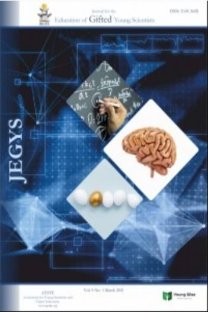Developing of Experimental Competence of Laos pupils in Secondary School Science Classroom
How to help teachers to design teaching plan for raising student’s competency at secondary school in Laos is now of great concern. On the other hand, teachers teach sciences almost by lecturing theory only. They rarely explain the problems based on actual phenomena that occur in pupils’ daily life nor do experiment during the class. Thus, one of the vital concerns for Lao’s science education is that the summative and formative assessment for science learning are both only focused on evaluating the pupils’ knowledge. To improve the quality of learning and pave a new way for teaching by doing physics experiment, we developed a practical science course“Heat and temperature” with hands on activities and realistic application. For measuring experimental competence, the framework for practical assessment from Etkina 2002and Metzger 2012 was adapted and used(E. Etkina, Van Heuvelen, Brookes, & Mills, 2002)(Metzger, Gut, Hild, & Tardent, 2014). In this paper, we describe the process and experiences of how to develop the course with comprehensive worksheets and hands on equipment. We also interpret the way to gather evidence of experimental competence during the course. After that, we present some initial results of the development of pupils’ competence during the course.
Keywords:
Experimental competence, Lao pupils, heat and temperature,
___
- Etkina, E., & Murthy, S. (2006). Design labs: Students’ expectations and reality. In AIP Conference Proceedings. https://doi.org/10.1063/1.2177032
- Etkina, E., Van Heuvelen, A., Brookes, D. T., & Mills, D. (2002). Role of Experiments in Physics Instruction — A Process Approach. The Physics Teacher, 40(6), 351–355. https://doi.org/10.1119/1.1511592
- Griffin, P., McGaw, B., & Care, E. (2012). Assessment and teaching of 21st century skills. Assessment and teaching of 21st century skills (Vol. 9789400723). https://doi.org/10.1007/978-94-007-2324-5
- Gut, C., Metzger, S., Hild, P., & Tardent, J. (2014). VALIDATION OF AN INTERDISCIPLINARY PERFORMANCE, 3–5.
- Josephy, R. (1986). Assessment of practical and experimental work in physics through OCEA. Physics Education, 21, 214–221.
- Metzger, S., Gut, C., Hild, P., & Tardent, J. (2014). Modelling and assessing experimental competence: An interdisciplinary progress model for hands-on assessments. E-Book Proceedings of the ESERA 2013 Conference: Science Education Research for Evidence-Based Teaching and Coherence in Learning.
- Millar, R. (2004). The role of practical work in the teaching and learning of science. High School Science Laboratories: Role and Vision, (October), 25.
- Miller, A. R., & Kastens, K. A. (2018). Investigating the impacts of targeted professional development around models and modeling on teachers’ instructional practice and student learning. Journal of Research in Science Teaching, 55(5), 641–663. https://doi.org/10.1002/tea.21434
- OCR. (2018). OCR Advanced Subsidiary and Advanced GCE in Physics. Retrieved from www.ocr.org.uk/alevelphysics
- Schecker, H., Neumann, K., Theyßen, H., Eickhorst, B., & Dickmann, M. (2016). Stufen experimenteller Kompetenz. Zeitschrift Für Didaktik Der Naturwissenschaften, 22(1), 197–213. https://doi.org/10.1007/s40573-016-0050-3
- Van Driel, J. H., Beijaard, D., & Verloop, N. (2001). Professional development and reform in science education: The role of teachers’ practical knowledge. Journal of Research in Science Teaching. https://doi.org/10.1002/1098-2736(200102)38:2<137::AID-TEA1001>3.0.CO;2-U
- Weinert, F. E. (2001). Concept of Competence: A Conceptual Clarification. In Definition and Selection of Competencies: Theoretical and Conceptual Foundation (DeSeCo). https://doi.org/10.1073/pnas.0703993104
- Woods, K., & Griffin, P. (2013). Judgement-based performance measures of literacy for students with additional needs: Seeing students through the eyes of experienced special education teachers. Assessment in Education: Principles, Policy and Practice, 20(3), 325–348. https://doi.org/10.1080/0969594X.2012.734777
- Zhang, L. (2018). “Hands-on” plus “inquiry”? Effects of withholding answers coupled with physical manipulations on students’ learning of energy-related science concepts. Learning and Instruction, (December 2017), 0–1. https://doi.org/10.1016/j.learninstruc.2018.01.001
- Başlangıç: 2013
- Yayıncı: Genç Bilge Yayıncılık
Sayıdaki Diğer Makaleler
Araya MUSİKA, Pakkapong POUNGSUK, Nopakoon SİRİWAN, Sarawut INTORRATHED
Hadarah HADARAH, Rapiah TULHIKMAH
Budiyono SAPUTRO, Andriani TRİ SUSİLOWATİ
Adam Hadiana AMİNUDİN, İda KANİAWATİ, Endi SUHENDİ, Achmad SAMSUDİN, Bayram COŞTU, Rizal ADİMAYUDA
Himawan PUTRANTA, Supahar SUPAHAR
Oluseyi DADA, Samuel Matthew AKPAN
Undang ROSİDİN, Agus SUYANTA, Abdurrahman ABDURRAHMAN
Van Bien Nguyen, Xayparseut VYLAYCHİT, Anh Thuan NGUYEN
Muhamad IMADUDDİN, Anggun ZUHAİDA, Fitria Fatichatul HİDAYAH
Zuhkhriyan ZAKARİA, Punaji SETYOSARİ, Sulton SULTON, Dedi KUSWANDİ
